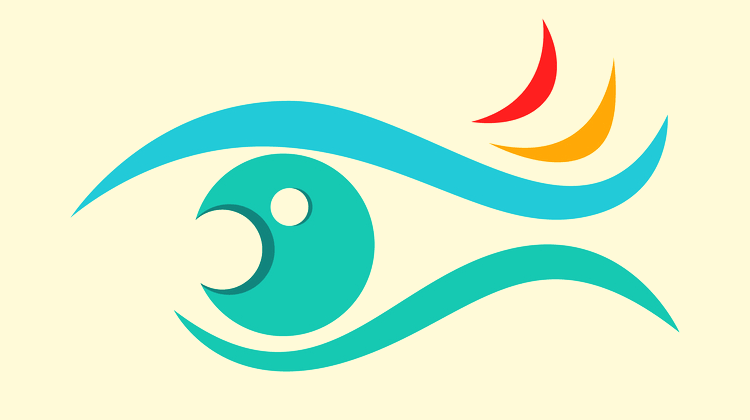What You Ought To Know About Disability And Credit Card Debt

For most people living off disability benefits, there’s a constant struggle to stay afloat financially. The modest monthly payments aren’t enough to live on, especially when you factor in medical expenses and the like. So it comes as no surprise that so many disabled Americans have huge amounts of credit card debt they can’t pay, often incurred before they were disabled.
So what happens if you find yourself with credit card or other debt you just can’t pay? What can you do about telephone calls from collectors or if you’re sued for old debt? Find out these answers and more in this post…
WHAT HAPPENS IF YOU DON’T PAY YOUR OLD DEBT?
The most important thing to know is that social security in all its forms including SSD is protected by federal law from garnishment from debt collectors. Almost all states have laws that protect private disability too. Even if a creditor files a lawsuit and obtains a judgment, they can’t take your disability income. You don’t have to pay the old debt you can’t afford to pay.
WHAT ABOUT MONEY IN YOUR BANK ACCOUNT?
Your bank account into which social security is deposited is also protected from garnishment. Federal banking regulations automatically protect twice the amount of federal benefits, including social security, electronically deposited into a checking account, no matter the source of the funds in the account at the time of a garnishment.
So, for example, if you receive SSD of $1000 per month, $2000 is automatically protected in your bank account no matter the source of the funds in the bank account at the time of garnishment.
IS THERE A WAY TO STOP COLLECTORS FROM CALLING ME AND SENDING DEMAND LETTERS?
Yes, you can send a “cease and desist” letter to a debt collector. The Fair Debt Collection Practices Act provides that when you send this letter (it must be sent in writing), collectors must stop all contact by phone or mail. A copy of this letter can be found on the internet or at this website: HelpIsHere.org.
WHAT IF I OWE PAST DUE INCOME TAXES?
While not common, the IRS may garnish 15% of SSD income for past due taxes owed. However, almost anyone receiving disability income will qualify for what’s called “noncollectable now status” with the IRS. This status means you won’t have to pay any taxes at all. State tax collectors can’t legally garnish social security income.
DO I NEED TO FILE BANKRUPTCY?
Because your disability income is protected, the short answer is no. For this reason, besides the cost, bankruptcy generally isn’t necessary. Sometimes disabled persons file bankruptcy simply to stop collector calls. There are far easier or less expensive ways to stop collector calls than by filing an unnecessary bankruptcy.
WILL SOMEONE ELSE BE RESPONSIBLE FOR MY CREDIT CARD DEBT I DON’T PAY?
Only the cardholder is responsible. If you’re disabled with a terminal illness, your credit card debt won’t transfer to anyone else after you die. However, this only holds so long as you don’t have joint co-signed credit cards co-signed with your spouse or another family member.
WHAT IF I WANT TO PAY OFF MY DEBT?
You can always choose to pay old debt or settle with collectors. However, that decision isn’t always wise or practical. Disability income generally doesn’t leave enough extra money to pay the old debt.
Debt settlement companies are “for profit” companies that attempt to settle debt for a fraction of what’s owed. They charge a fee for this service. Debt management companies or consumer credit counseling companies are non-profit. They work out a budget to pay old debt from your current income. Neither of these types of companies will tell a disabled person that his/her income is protected by law and can’t be taken from them. The Federal Trade Commission, FTC, advises caution in dealing with these companies.
SHOULD I SELL ASSETS TO PAY OFF OLD DEBT?
This isn’t generally a good idea. Every state has exemption laws that protect assets. Consumer judgment collectors will never take steps to take a person’s assets, even if there are assets that aren’t exempt under state law. It’s simply too expensive and complicated, let alone unproductive to engage in this kind of collection attempt.
Because of your limited income, these assets can’t be replaced. Any proceeds from the sale of assets are necessary for your basic needs.
WILL THE DEBT EVER GO AWAY?
Every state has what’s called a statute of limitations that provides a time limit after which a collector can’t legally file a lawsuit to collect a debt. In most states, this varies from 3-6 years for a credit card debt. A judgment is generally in effect for ten years and can be renewed. However, as explained, persons on disability are generally “judgment proof,” meaning the judgment holder can’t do anything to collect.
WHAT ABOUT FUTURE CREDIT?
Since 2008, credit availability is largely determined by a person’s income. Even a person with an excellent credit rating will have difficulty obtaining credit with minimal income. Secured credit cards are available.
WHAT HAPPENS IF I WANT TO EARN EXTRA MONEY / WHAT CAN I DO TO KEEP THAT MONEY SAFE?
The extra money you earn over the internet or otherwise can easily be protected from collectors. It will be available for you and your needs. You don’t need to worry that any extra money earned will have to be used to pay old debt. Here are reasons why this extra money is safe as well as some rules to follow:
- Before anything could even possibly happen, a creditor would have to file a lawsuit against you and get a judgment.
- Remember twice the amount of social security in your bank account into which social security is deposited is protected from garnishment by federal regulations, no matter the source of the funds in the bank account at the time of the garnishment. Banks are required to examine bank accounts that are garnished and can determine if social security is deposited into the bank account. So money from a little business deposited into your social security bank account is safe as long as the total in the account is less than twice the amount of monthly social security.
- Federal law protects a net $217.50 per week in wages from garnishment or around $945 a month.
- Some persons on disability form a limited liability corporation to operate a small business. An LLC is a different legal entity. A creditor that has a judgment against an individual couldn’t garnish a bank account held in the name of an LLC.
- Consumer judgment creditors such as credit card companies never aggressively pursue persons on disability. It’s simply not practical or economical.
NOW IT’S YOUR TURN!
What your thoughts about credit card and consumer debt while receiving disability benefits? Leave your comments below!
ABOUT THE AUTHOR:Eric W Olsen | Executive DirectorHELPS Nonprofit Law FirmBringing Peace to Seniors and Disabled Persons
HELPS Nonprofit Law Firm is a 501(c)(3) organization that represents seniors and disabled persons in all 50 states to receive collector communication under the Federal Fair Debt Collection Practices Act. HELPS educates seniors and disabled persons about how to maintain their financial independence. HELPS does not represent persons in court or provide legal advice. No qualified person is turned away. Please visit HelpsIsHere.org to learn more.








